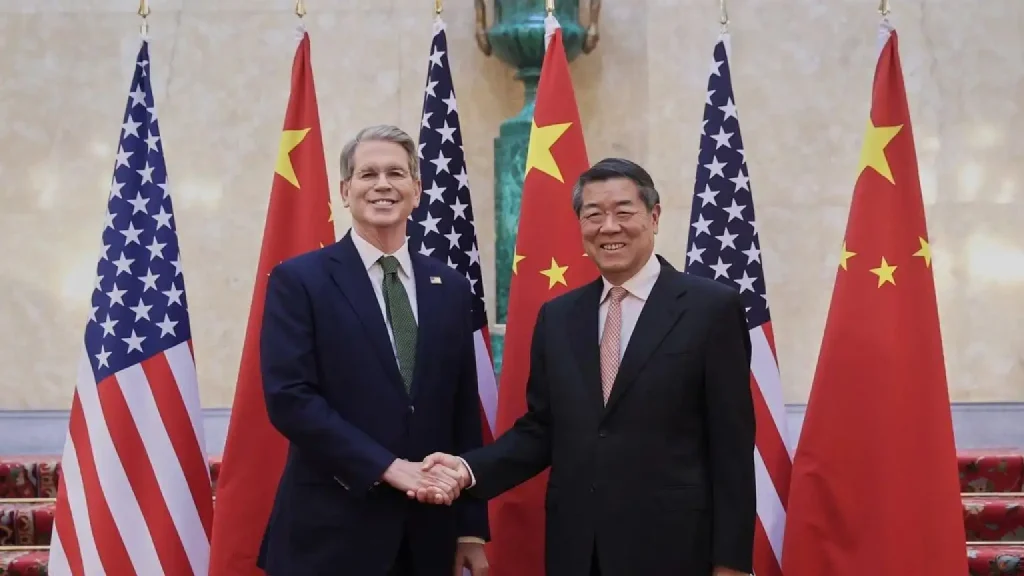In a significant step toward easing trade tensions, China and the United States have agreed in principle on a framework to implement the consensus reached during a June 5 phone call between their heads of state, as well as agreements from prior talks in Geneva.
The announcement, made by a senior Chinese official on Tuesday, followed the inaugural meeting of the China-U.S. economic and trade consultation mechanism held in London.
This development signals a potential thaw in the complex economic relationship between the world’s two largest economies.
Professional and Candid Discussions
Chinese Vice Minister of Commerce Li Chenggang, also China’s international trade representative, described the negotiations as “professional, rational, in-depth, and candid.”
He emphasized the collaborative spirit, stating, “The two sides agreed in principle [on] the framework for implementing the consensus of the two heads of state and the Geneva meeting.”
The talks focused on actionable steps to translate high-level agreements into practical outcomes, addressing longstanding trade disputes and fostering mutual economic benefits.
Strengthening Trust and Stability
Li expressed optimism that the progress achieved in London would bolster trust between the two nations.
“We hope this meeting’s outcomes increase trust, promote sound trade relations, and inject positive energy into the global economy,” he said.
Both delegations committed to reporting the framework to their respective leaders, Chinese President Xi Jinping and U.S. President Donald Trump, for further guidance.
The agreement is seen as a foundation for stabilizing bilateral trade ties amid global economic uncertainties.
Context of High-Stakes Negotiations
The London talks build on a pivotal June 5 phone call between Xi and Trump, which paved the way for renewed dialogue.
Last month in Geneva, the two nations agreed to temporarily reduce triple-digit tariffs, a measure set to expire in early August.
This temporary reprieve underscored the urgency of the London meeting, where both sides sought to establish a more durable framework.
The discussions reflect broader efforts to address trade imbalances, intellectual property concerns, and market access issues that have strained relations in recent years.
Key Figures Driving Progress
The U.S. delegation, representing the Trump Administration, included Treasury Secretary Scott Bessent, Commerce Secretary Howard Lutnick, and Trade Representative Jamieson Greer.
China’s team was led by Vice Premier He Lifeng, Commerce Minister Wang Wentao, and Li Chenggang.
Lutnick highlighted the momentum, noting, “Both sides had extra impetus, with our presidents pushing us to deliver.”
The high-level representation underscores the strategic importance of the talks for both nations.
Global Economic Impact
As the world watches, the London framework could ease trade tensions and stabilize global markets.
This is as the agreement’s focus on trust and cooperation offers hope for sustained economic dialogue, with potential benefits extending beyond bilateral relations to the broader international economy.























